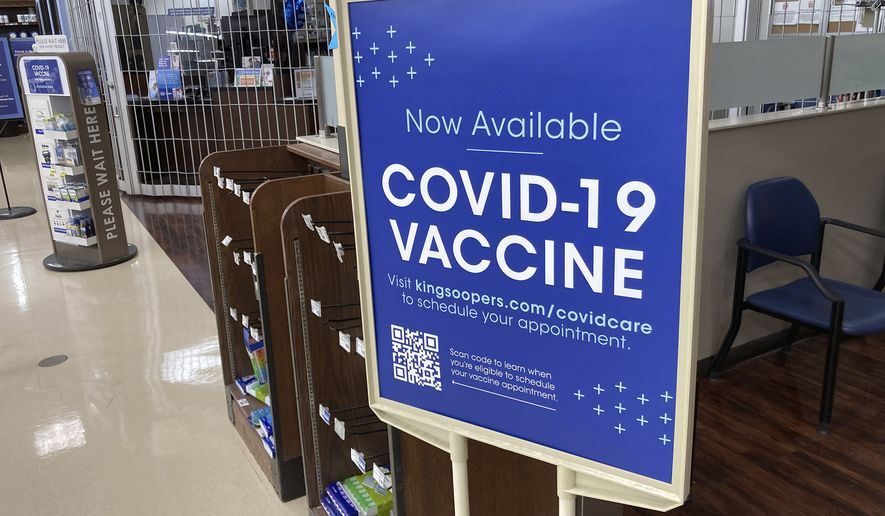Scores of religious organizations asked federal appeals courts Friday to halt President Biden’s vaccine mandate, saying it was an intrusion into their ministries.
A petition to stay the new workplace rule was filed by the public-interest law firm Alliance Defending Freedom on behalf of two Kentucky schools, the Southern Baptist Theological Seminary in Louisville and Asbury Theological Seminary in Wilmore.
It argued that the mandate would force the schools to “intrude into the religious conscience medical decisions of their employees, and then track them.”
While religious exemptions for employees are allowed, the measure does not allow exemptions for faith-based employers, said the Alliance Defending Freedom.
David A. Cortman, a senior counsel at the alliance, said the mandate “violates several constitutional statutory rights and goes beyond the power of OSHA. That’s not what OSHA was developed for; people themselves are not workplace hazards. They shouldn’t be governing in this area.”
Several other faith-based organizations and a trade group for Christian employers filed similar petitions asking federal courts to block the mandate.
At issue is whether private religious entities can be compelled to enforce a federal mandate. While the Supreme Court ruled in favor of state-mandated vaccinations in 1905’s Jacobson v. Massachusetts, the question now is whether the federal government can impose a national mandate for private employees.
One of the legal actions came from Christian Employers Association on behalf of roughly three dozen of its members who each have more than 100 employees and therefore would be subject to the vaccine mandate.
At least 100,000 employees of faith-based employers represented by CEA would be impacted, according to CEA President Shannon Royce.
“This is not about the vaccine,” Ms. Royce said. “What this is about is our members oppose being used as a tool of this expansive, overreaching federal government to require their employees to take a vaccine that violates their conscience for their religious freedom.”
Separately, Christian organizations Daystar Television Network, the American Family Association and Answers in Genesis are seeking federal court intervention against the mandates.
“As religious ministries, our clients cannot in good conscience force their own employees to violate their deeply held beliefs regarding vaccines,” said David Hacker, litigation director at the public-interest group First Liberty Institute that is representing the three Christian organizations.
“The federal government has no authority to compel employers to violate the personal health care decisions of their employees,” he said.
The Occupational Safety and Health Administration issued the new emergency rule Thursday that required all private businesses with 100 or more employees to ensure that every employee is vaccinated against the COVID-19 by Dec. 4. Workers who are not vaccinated must wear a mask and get weekly testing for the virus.
The Rev. Albert Mohler of Southern Baptist Theological Seminary said he didn’t want to be a vaccine policeman for the seminary’s 300 to 400 employees.
He was concerned that he would have to check the vaccination status of each employee and potentially fire unvaccinated workers. He said it puts religious institutions in the position of “repeatedly, ongoingly, requiring a violation of conscience and an intrusion into conscience in such a way that the relationship between the churches and the institution and the employees.”
Mr. Mohler argued the requirement “is a form of government coercion, turning a religious institution into a form of government coercion, that we must resist.”
The Labor Department, asked for a comment from The Washington Times, asserted the legality of the emergency temporary standard, but did not address the religious exemption.
Department Solicitor Seema Nanda said, in a statement, “This ETS preempts any state or local requirements that ban or limit an employer’s authority to require vaccination, face covering, or testing. [It] is well within OSHA’s authority under the law and is consistent with OSHA’s requirements to protect the health and safety of workers. We are fully prepared to defend this standard in court.”
• Mark A. Kellner can be reached at mkellner@washingtontimes.com.




Please read our comment policy before commenting.